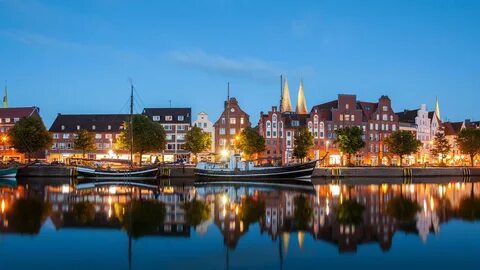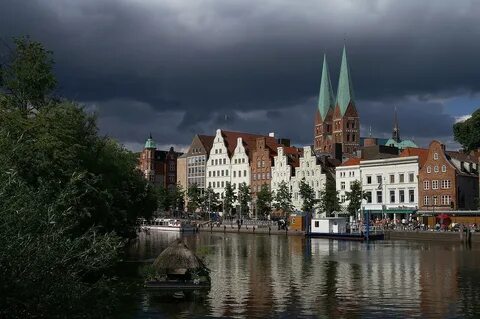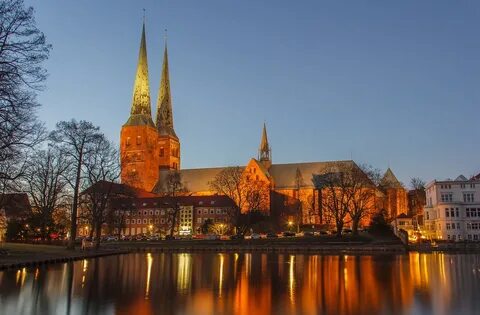Schleswig-Holstein Detailed Information About the State










Information About Schleswig-Holstein
Schleswig-Holstein is a state located in the north of Germany. This state, which borders Denmark, is located in a region that also has a coast to the Baltic Sea. Its capital is Kiel. Schleswig-Holstein has historically been a border region between Denmark and Germany. Therefore, the cultural and historical heritage in the region reflects both German and Danish influences. This region has witnessed many wars and conflicts historically. The state's economy is based on agriculture, maritime and tourism. In agriculture, especially wheat, potato and sugar beet cultivation is important. Additionally, Schleswig-Holstein is home to the Port of Kiel, one of the largest ports in Germany. It is also a rich region in terms of tourism. The Baltic Sea coast attracts the attention of many tourists with its beaches and natural beauties. Additionally, a sailing event called Kiel Week is also held every year. Schleswig-Holstein is also known for its famous Holstein cattle. These cattle are raised for milk and meat production. There are also many historic churches, castles and museums in the state of Schleswig-Holstein. Schleswig-Holstein is an important region of Germany with its natural beauties, historical heritage and cultural riches. It is a place worth exploring for tourists.Information About Location and Geography
Schleswig-Holstein is a state located in the north of Germany. It borders with Denmark. Its capital is Kiel. Schleswig-Holstein is located on the western coast of the Baltic Sea and most of its territory is flat and fertile. While the Schleswig Peninsula is located in the east of the state, there are the Frisian Islands in the west. It also has a coast to the North Sea. The climate of the state is temperate. While winters are generally mild, summers can be cool and rainy. Due to the geographical location of the state, it is under the influence of the sea and has a windy climate. Schleswig-Holstein plays an important role in agriculture. Products such as cereals, potatoes and sugar beets are grown. Additionally, animal husbandry is also important. The state also has important touristic places. Especially the Frisian Islands attract the attention of visitors with their beaches and natural beauties. Additionally, the Kiel Canal is also a major tourist attraction. Schleswig-Holstein also has a rich history in historical and cultural terms. There are many historical castles, churches and museums in the state. It also hosts a population of different ethnicities, which It is a reflection of cultural diversity. Schleswig-Holstein is an interesting destination for visitors with both its natural beauties and historical and cultural riches.Information About History
Schleswig-Holstein is a state located in the north of Germany. This state was formed by the merger of two historical regions, Schleswig and Holstein. Schleswig-Holstein is located close to Denmark's southern borders and borders the Baltic Sea and the North Sea. Historically, the Schleswig-Holstein region is known as a region that frequently changed hands between the Kingdom of Denmark and the Holy Roman Empire in the Middle Ages. In the mid-19th century, a series of conflicts occurred, also known as the Schleswig-Holstein conflict. This issue arose due to disagreements over whether the Schleswig-Holstein region would belong to Denmark or Prussia. Finally, in 1864, Schleswig and Holstein were taken from Denmark and annexed to Prussia. In the 20th century, Schleswig-Holstein witnessed important events such as two world wars and the division of Germany. II. After World War II, the region became part of West Germany, and in 1949 it became a state of the Federal Republic of Germany. With the unification of East and West Germany in 1990, Schleswig-Holstein became part of reunified Germany. Schleswig-Holstein is a region known for its historical and natural beauties. It is also home to important waterways such as the Kiel Canal. Kiel, the capital of the state, is located on the Baltic Sea coast and has a large port. Additionally, Schleswig-Holstein has many historical castles, museums and natural parks.Tourist Attractions
Schleswig-Holstein is a state in northern Germany, located between the Baltic Sea and the North Sea. This beautiful region is famous for its historical and cultural heritage, natural beauties and beaches. Additionally, Schleswig-Holstein is one of the largest states in Northern Germany and hosts many attractions for tourists. Here are some of the tourist attractions you can visit in Schleswig-Holstein:1. Kiel: Kiel, the capital of Schleswig-Holstein, is known for its famous Kiel Week sailing races. In addition, Kiel Port offers a pleasant experience to visitors with its botanical gardens and historical buildings.
2. Lübeck: Located on the UNESCO World Heritage List, Lübeck is a historical city from the Middle Ages. There are many attractions here, such as historical buildings built in Gothic style, narrow streets and the famous Holstentor gate. There are.
3. Flensburg: Flensburg is a port city in the north of Schleswig-Holstein. Here, there are impressive historical buildings, museums and beautiful beaches. Additionally, the Flensburg Fjord is famous for its natural beauty.
4. Sylt: The largest island of Schleswig-Holstein, Sylt is famous for its beautiful beaches and natural landscapes. Here, you can do water sports, hike or just relax on the beach.
5. Husum: Husum is a small city located on the Wadden Sea coast of Schleswig-Holstein. Here you can find tourist attractions such as historic coastal buildings, the harbor and the famous House of Theodor Storm.
6. Eckernförde: Eckernförde is a resort town located on the Baltic Sea coast. There are beautiful beaches, sailing opportunities and a historic harbour. Schleswig-Holstein offers visitors an unforgettable experience with its natural beauties, historical heritage and beaches. These tourist destinations offer many activities and attractions to appeal to vacationers' interests and preferences.
Food Culture
Since Schleswig-Holstein is a region located in Northern Germany, its food is often influenced by typical German cuisine. However, the fact that the region is located along the coastline and close to the Danish border makes some special dishes popular in this region. Here are some typical dishes of Schleswig-Holstein:1. Rübenmus: This dish has become a symbol of Schleswig-Holstein. It usually consists of boiling and mashing red beets and potatoes. Sausage or bacon is usually added on top. Rübenmus is consumed especially in autumn and winter.
2. Birnen, Bohnen und Speck: This dish means "pears, beans and bacon" in German. It is a very popular dish in Schleswig-Holstein. In this dish, boiled beans, chopped pears and bacon are cooked together.
3. Grünkohl mit Pinkel: Grünkohl, or castle, has an important place in Schleswig-Holstein cuisine. It is usually served as a meat dish. Grünkohl mit Pinkel includes a type of sausage called Pinkel in addition to steamed kale leaves.
4. Labskaus: Popular among sailors, this dish usually consists of a mixture of salted meat, mashed potatoes and beets. It is usually served with pickles, onions and boiled eggs.
5. Fischbrötchen: Since Schleswig-Holstein is located along the coastline, seafood is also very popular. Fischbrötchen, or fish sandwich, is a frequently consumed snack in the region. Usually fresh salmon, herring or fish These sandwiches, made with fish such as ull, are served on bread with mayonnaise, onions and pickles. Schleswig-Holstein offers its visitors a delicious experience with its unique dishes along with the influence of German cuisine.
Entertainment and Nightlife
Schleswig-Holstein is a state located in the north of Germany. The most popular cities in this state are Kiel, Lübeck and Flensburg. Now I can give you information about the entertainment and nightlife of these cities. Kiel is the capital and largest city of Schleswig-Holstein. The university city of Kiel is famous for its young population and lively atmosphere. There are many bars, restaurants, nightclubs and cafes here. Especially the city center and the port area are areas where nightlife is intense. There are many nightclubs and bars in the area called Kiel Cross. In addition, the entertainment and nightlife in the city becomes even more lively during events such as the annual Kiel Week. Lübeck is one of the most historic cities in Schleswig-Holstein. For this reason, nightlife may be a little quieter than other cities. However, there are still many restaurants, bars and pubs in Lübeck. There is a lively atmosphere, especially in areas such as Hüxstraße and Breite Straße in the city centre. Additionally, entertainment options in the city diversify with events such as the Lübeck Music Festival. Flensburg is a city in the north of Schleswig-Holstein. Since it is located in the northernmost part of Germany, it carries Danish and Scandinavian influences. Flensburg has a lively nightlife with its young population and university. There are many bars, pubs and nightclubs in the city. Entertainment venues are especially dense in areas such as Norderstraße, Rote Straße and Südermarkt. Nightlife in Flensburg also becomes lively with events such as the annual Greek Festival. Other cities in Schleswig-Holstein also have entertainment and nightlife options. However, Kiel, Lübeck and Flensburg are cities that offer more options in this regard. Each city has different atmospheres and events, so there's something to suit everyone's interests.Economic Information
Schleswig-Holstein is a state located in the north of Germany and plays an important economic role. The state is known for its agriculture, maritime, tourism and renewable energy sectors. The agricultural sector occupies an important place in Schleswig-Holstein's economy. The state is famous for its agricultural lands and fertile soil. Therefore, production of agricultural products and animal husbandry was an important economic activity in the state. r. The maritime sector is also important for Schleswig-Holstein. The state is located on the coast of the Kiel Canal and the Baltic Sea. Therefore, there are many companies operating in maritime-related fields such as shipping, shipyard activities and fishing. The tourism industry is also a major economic factor in the state. Schleswig-Holstein is famous for its beautiful natural landscapes, beaches and historical buildings. Therefore, many tourists visit resorts, beaches and cultural events in the state. The tourism sector supports many sub-sectors such as hotel management, restaurants, guide services and tourist activities. Finally, Schleswig-Holstein plays an important role in the renewable energy sector. The state is a leader in wind energy production. Many wind farms and wind turbines are located in Schleswig-Holstein. The state is also active in biomass energy production. Overall, Schleswig-Holstein is an economically strong state with its agriculture, maritime, tourism and renewable energy sectors. These sectors make significant contributions to the state's employment and economic growth.
Read: 37